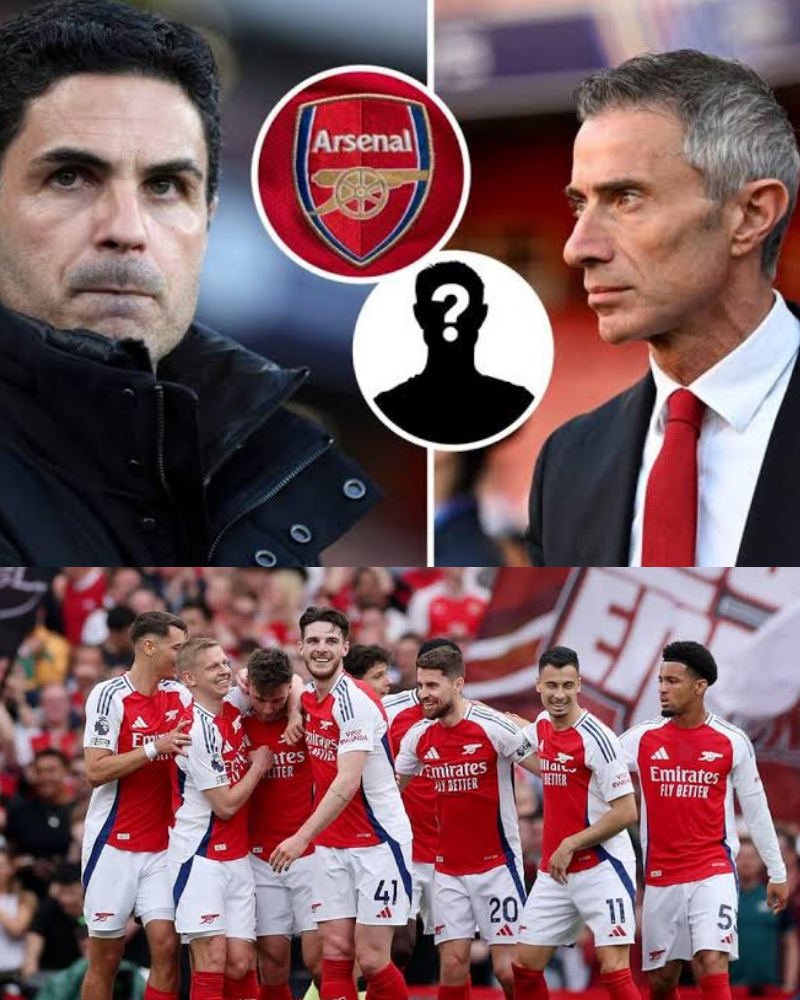Arsenal super Star bod emotional farewell to Arteta and Arsenal

The world of football coaching has witnessed another significant transition as Carlos Cuesta, Arsenal’s highly regarded assistant coach, officially confirmed his departure from the North London club to embark on his maiden voyage as a head coach with Serie A side Parma. This move represents not just a career milestone for the 29-year-old Spaniard, but also marks a pivotal moment in the ongoing evolution of modern football management, where young, tactically astute coaches are increasingly trusted with senior roles at prestigious clubs across Europe.
Carlos Cuesta’s story is one of determination, vision, and an unwavering commitment to the beautiful game. Born in the picturesque city of Palma de Mallorca, Cuesta’s journey into the coaching world began remarkably early, demonstrating a maturity and understanding of football that belied his years. At just 18 years old, when most of his peers were either pursuing university education or attempting to establish themselves as professional players, Cuesta had already identified his calling and began working with Atlético Madrid’s youth teams.
This early start in coaching was not merely a consequence of circumstance but a deliberate choice that reflected Cuesta’s deep understanding of football’s tactical and psychological complexities. His work with Atlético Madrid’s youth development program provided him with invaluable experience in nurturing young talent, understanding the intricacies of player development, and developing the communication skills that would later prove instrumental in his success at the highest levels of the game.
The transition from Atlético Madrid to Juventus marked another crucial phase in Cuesta’s development as a coach. Working with the Italian giants’ Under-17 squad exposed him to a different footballing culture, one steeped in tactical sophistication and defensive discipline. This experience in Italian football would prove prophetic, as it provided him with insights into Serie A’s unique demands and characteristics that would later facilitate his appointment at Parma.
During his time at Juventus, Cuesta honed his understanding of tactical systems, player psychology, and the demanding standards expected at elite European clubs. The Italian football environment, known for its emphasis on tactical awareness and strategic thinking, provided the perfect classroom for a young coach eager to expand his knowledge and refine his methods. This period also allowed him to work with players from diverse backgrounds and playing styles, further enhancing his ability to adapt his coaching approach to different personalities and skill sets.
August 2020 marked a turning point in Cuesta’s career when he joined Arsenal as part of Mikel Arteta’s coaching staff. This appointment came at a time when Arsenal was undergoing significant transformation under Arteta’s leadership, with the Spanish manager looking to build a backroom team that shared his vision for modern, progressive football. Cuesta’s arrival was part of a broader strategy to inject fresh ideas and contemporary coaching methods into the club’s training ground operations.
The timing of Cuesta’s arrival at Arsenal was particularly significant, coinciding with a period of renewal and ambition at the Emirates Stadium. Arsenal, under Arteta’s guidance, was attempting to reclaim its position among English football’s elite while also establishing a sustainable foundation for long-term success. Cuesta’s role in this transformation cannot be understated; his contributions extended far beyond the training ground, encompassing tactical analysis, player development, and strategic planning.
During his five-year tenure at Arsenal, Cuesta witnessed and contributed to some of the club’s most memorable moments in recent history. The FA Community Shield victories in 2020 and 2023 represented tangible success, but perhaps more importantly, they symbolized Arsenal’s return to winning ways and their ability to compete with England’s best teams. These achievements were particularly meaningful for Cuesta, as they validated the tactical approaches and training methods he helped implement alongside Arteta and the rest of the coaching staff.
Beyond the silverware, Cuesta’s influence at Arsenal was perhaps most evident in the club’s tactical evolution and the development of individual players. Under his guidance, Arsenal transformed from a team struggling to find its identity to a cohesive unit capable of challenging for major honors. The club’s rise to Premier League title contention during his tenure speaks to the effectiveness of the coaching methods and tactical innovations he helped introduce.
Cuesta’s reputation as one of Europe’s most promising young coaches stems largely from his innovative approach to tactical preparation and his exceptional ability to connect with players. His methods combined traditional coaching wisdom with cutting-edge analytical techniques, creating a comprehensive approach that addressed both the technical and psychological aspects of player development.
One of Cuesta’s most notable strengths was his attention to detail, a characteristic that permeated every aspect of his work at Arsenal. Whether analyzing opponent weaknesses, preparing set-piece routines, or working on individual player improvements, Cuesta’s meticulous approach ensured that no aspect of the game was left to chance. This thoroughness was particularly evident in Arsenal’s improved defensive organization and their increasingly sophisticated attacking patterns during his tenure.
His tactical intelligence was perhaps most apparent in his ability to adapt Arsenal’s playing style to different opponents and situations. Working closely with Arteta, Cuesta helped develop the tactical flexibility that allowed Arsenal to compete effectively against teams employing various tactical systems. This adaptability was crucial in Arsenal’s ability to challenge on multiple fronts and maintain consistency across different competitions.
The strong rapport Cuesta developed with players was another defining characteristic of his time at Arsenal. Despite his relatively young age, he earned the respect of seasoned professionals and emerging talents alike, a testament to his communication skills and his ability to relate to players from diverse backgrounds. This connection was not merely about tactical instruction but extended to mentorship and psychological support, helping players maximize their potential both on and off the pitch
The esteem in which Cuesta was held within the football community was perhaps best exemplified by the praise he received from former Arsenal midfielder Granit Xhaka. The Swiss international, now plying his trade with Bayer Leverkusen, offered a particularly insightful assessment of Cuesta’s potential in 2024, stating: “I am sure that one day Carlos Cuesta will be a manager for a big, big, big club. He knows what he wants, he has clear ideas.”
Xhaka’s endorsement carries significant weight, coming from a player who has worked under numerous coaches throughout his career and has experienced football at the highest levels across different leagues and international competitions. His recognition of Cuesta’s managerial potential reflects not only the Spanish coach’s tactical acumen but also his leadership qualities and his ability to inspire confidence among players.
This recognition from peers extended beyond individual testimonials to include acknowledgment from other coaching professionals and football analysts who recognized Cuesta’s contributions to Arsenal’s tactical evolution. His work was often highlighted in tactical analyses of Arsenal’s performances, with experts noting the sophistication of the team’s pressing triggers, defensive transitions, and attacking combinations that bore his influence.
The respect Cuesta commanded within the football community was also evident in the interest shown by various clubs seeking to recruit him for senior positions. Parma’s successful pursuit of his services came after a competitive process that saw several clubs expressing interest in securing his signature, testament to his growing reputation as a coach ready for the challenges of leading a team independently.
Cuesta’s departure from Arsenal was marked by an emotional farewell message that captured the depth of his connection to the club and his appreciation for the experiences he had gained during his five-year tenure. Shared via Instagram, his message resonated with Arsenal supporters and the broader football community, offering insight into the personal and professional growth he experienced at the Emirates Stadium.
“After five beautiful years, it’s hard to put this into words, but I can only express how grateful I am for having lived my day-to-day with such special people and felt what it means to represent this football club, with its incredible history and values. Thank you, Arsenal,” Cuesta wrote, encapsulating the emotional weight of his departure and his deep appreciation for the opportunity he had been given.
The message revealed not only his professional satisfaction but also his personal connection to Arsenal’s culture and traditions. His reference to the club’s “incredible history and values” suggests that his time at Arsenal involved more than tactical work; it represented an immersion in the club’s philosophy and a genuine appreciation for its place in football history.
Perhaps the most poignant aspect of Cuesta’s farewell message was his tribute to Mikel Arteta, whom he credited with shaping his development as a coach and as a person. “Thank you for your trust, for giving me the opportunity to be next to you and for showing me with constant facts what the word ‘courage’ truly means. You’ve taught me a lot, and I will carry it always with me,” he wrote, highlighting the mentorship relationship that had developed between the two Spanish coaches.
The relationship between Cuesta and Arteta represents one of the most significant aspects of the young coach’s development during his time at Arsenal. Arteta’s decision to bring Cuesta into his coaching staff demonstrated his ability to identify and nurture coaching talent, while Cuesta’s growth under Arteta’s guidance speaks to the effectiveness of their professional partnership.
Arteta’s influence on Cuesta extended beyond tactical instruction to encompass leadership development and decision-making under pressure. The reference to “courage” in Cuesta’s farewell message is particularly telling, suggesting that Arteta helped him develop the confidence and conviction necessary to make difficult decisions and implement bold tactical approaches.
This mentorship relationship was evident in the way Cuesta gradually assumed increased responsibilities within Arsenal’s coaching structure. His evolution from a newly appointed assistant to a trusted lieutenant who could be relied upon for tactical innovation and player development reflected the trust Arteta placed in his abilities and the effectiveness of their collaborative approach.
The impact of this mentorship will undoubtedly influence Cuesta’s approach as he transitions into his first head coaching role. The principles and methods he learned from Arteta, combined with his own innovations and insights, will form the foundation of his coaching philosophy at Parma and beyond.
Parma’s decision to appoint Cuesta as their new head coach represents a calculated risk that reflects broader trends in modern football management. The Italian club, which finished 16th in Serie A last season, recognized the need for fresh ideas and a long-term vision to improve their competitive position. In Cuesta, they identified a coach whose tactical acumen, analytical approach, and experience at elite clubs make him well-suited to lead their rebuilding efforts.
The appointment is particularly significant given Cuesta’s age, as he becomes one of the youngest head coaches in Serie A history. This reflects a growing willingness among football clubs to entrust young, analytically minded coaches with senior responsibilities, recognizing that tactical innovation and fresh perspectives can often compensate for lack of experience in the top job.
Parma’s interest in Cuesta was not sudden but developed over several weeks of negotiations, during which both parties assessed the potential for a successful partnership. The club’s decision to pursue him demonstrates their belief in his ability to implement a modern, progressive style of play while also developing the tactical discipline required to compete effectively in Serie A
The Italian league’s tactical sophistication and defensive emphasis will provide Cuesta with a familiar environment, given his previous experience at Juventus. However, the challenges of Serie A management will test his ability to adapt his coaching methods to the unique pressures and demands of being a head coach rather than an assistant.
While Cuesta’s tactical philosophy has been shaped by his experiences at various clubs, his approach to the game reflects a modern understanding of football’s tactical evolution. His work at Arsenal under Arteta exposed him to a system that emphasized positional play, high pressing, and quick transitions between defensive and attacking phases.
Cuesta’s tactical approach is characterized by attention to detail in all phases of play, from build-up patterns and pressing triggers to defensive organization and set-piece execution. His analytical background enables him to identify patterns and weaknesses in opponents while maximizing his own team’s strengths through careful tactical preparation.
At Parma, Cuesta will likely implement a playing style that emphasizes technical proficiency, tactical discipline, and collective responsibility. His experience working with players of varying skill levels at Arsenal will serve him well as he seeks to maximize the potential of Parma’s squad while implementing his tactical vision.
The transition from assistant to head coach will require Cuesta to develop additional skills, particularly in areas such as squad management, media relations, and strategic planning. However, his foundational knowledge and analytical approach provide a solid platform for this transition.
Cuesta’s departure represents a significant loss for Arsenal, where he was regarded as a highly influential figure within the coaching setup. His contributions to the club’s tactical evolution and player development made him an integral part of Arteta’s coaching staff, and his absence will require careful planning to maintain continuity in training methods and tactical preparation.
The timing of Cuesta’s departure, with the new Premier League season approaching, adds urgency to Arsenal’s need to find a suitable replacement. The club must identify a coach who can seamlessly integrate into Arteta’s system while bringing their own expertise and insights to the role.
Mehmet Ali, Arsenal’s U21s manager, has emerged as a potential candidate to fill Cuesta’s position, given his existing relationship with the club and his alignment with Arteta’s coaching philosophy. However, the decision will ultimately depend on Arteta’s assessment of the available options and his vision for the coaching staff’s future development.
The search for Cuesta’s replacement also represents an opportunity for Arsenal to continue evolving their coaching structure and potentially introduce new perspectives and methods. This transition period could prove beneficial if managed effectively, allowing the club to maintain its tactical sophistication while incorporating fresh ideas.
Cuesta’s appointment at Parma reflects a broader trend across European football toward entrusting young, analytically minded coaches with senior positions. This shift represents a recognition that tactical innovation and modern coaching methods can often compensate for limited managerial experience, particularly when combined with strong analytical skills and a clear football philosophy.
The success of young coaches like Julian Nagelsmann, Xabi Alonso, and others has demonstrated that age is not necessarily a barrier to effective football management. These appointments have shown that clubs willing to take calculated risks on promising young coaches can often benefit from fresh perspectives and innovative approaches.
However, the trend also highlights the importance of proper preparation and support structures for young coaches transitioning into senior roles. Cuesta’s extensive experience at elite clubs and his exposure to different footballing cultures provide him with a stronger foundation than many young coaches possess when making similar transitions.
Cuesta’s move to Serie A represents a return to Italian football, where he previously worked with Juventus’s youth teams. This experience will prove valuable as he adapts to the tactical sophistication and strategic emphasis that characterize Italian football at the highest level.
Serie A’s reputation for tactical innovation and defensive discipline will provide Cuesta with an environment where his analytical approach and attention to detail are likely to be appreciated. The league’s emphasis on tactical preparation and strategic thinking aligns well with his coaching philosophy and background.
However, the pressures of Serie A management will test Cuesta’s ability to handle the intense scrutiny and expectations that accompany top-level coaching positions in Italy. His success will depend not only on his tactical acumen but also on his ability to manage personalities, handle media pressure, and maintain team morale through difficult periods.
Cuesta’s appointment at Parma represents the beginning of what could be a distinguished managerial career. His combination of tactical knowledge, analytical skills, and experience at elite clubs provides him with the tools necessary to succeed at the highest levels of football management.
The success of his tenure at Parma will likely influence his future career trajectory and determine whether he fulfills the potential that observers like Granit Xhaka have identified. A successful period in Serie A could position him for opportunities at larger clubs and more prestigious competitions.















